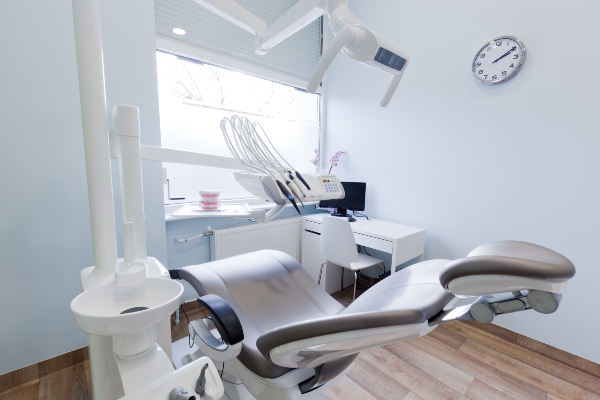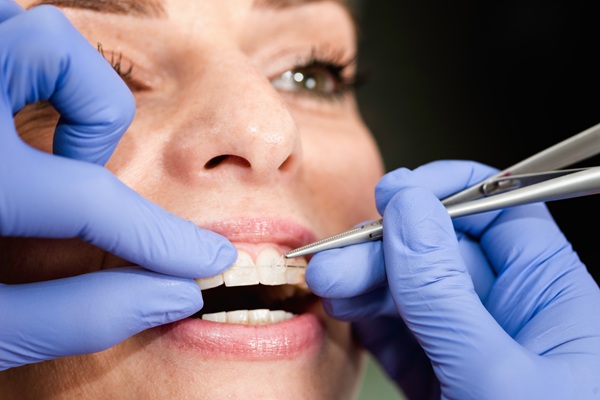General Dentist Information: How Osteoporosis Can Affect the Health of Your Teeth

A general dentist has a wealth of knowledge, not only about oral health but also about health issues that may affect or threaten oral health. Osteoporosis, for example, is a condition that weakens bones in the body. The health of our teeth depends on a variety of factors, including dental hygiene, hereditary tooth structure and even seemingly unrelated health problems throughout the body.
What is osteoporosis?
Osteoporosis is a condition that affects the bones, weakening them and making them easily breakable. It is characterized by low bone mass and structural deterioration of bone tissue. The body is constantly absorbing and replacing bone tissue, but with osteoporosis, the creation of new bone does not fully replace old bone. Unfortunately, the condition is widely undetectable until a fracture occurs.
Who is at risk for osteoporosis?
Women are twice as likely to develop osteoporosis, but only by a relatively small margin. The areas most affected by osteoporosis are the hip, spine and wrist, but any bone in the body can be affected. The condition mostly affects patients over the age of 40, but cases have been reported as young as 14. Even though this is a medical condition, a general dentist will have knowledge about the way it affects the teeth.
Osteoporosis and your teeth
Although osteoporosis does not affect the teeth directly, it can target the jawbone. Specifically, it affects the part of the jawbone that supports the teeth. When the jawbone is compromised, the sufferer may start to experience an increased frequency of dental issues.
Jawbone loss is likely to cause tooth loss and loosened teeth. Gum recession can occur as well. When the teeth are unsupported, they begin to loosen. The gum has less to hold onto, so it begins to recede due to disuse. As a result of this gum recession, the teeth can become more susceptible to decay and the gums more prone to gum disease. The vicious cycle continues until tooth loss occurs.
In addition to making an appointment with a general dentist to get to the root of these issues, there are ways to control and even prevent the progression of the condition.
How to avoid teeth issues associated with osteoporosis
Give your teeth the best fighting chance by first implementing a diligent oral hygiene routine. Daily brushing and flossing needs to be a top priority when you are diagnosed with osteoporosis if you want to avoid teeth problems. Regular professional dental cleanings will also help. Your general dentist will be able to work with you and come up with an action plan to treat teeth issues related to osteoporosis.
A diet rich in calcium and vitamin D can lessen the effects of osteoporosis on dental health. Vitamin D also helps in preventing infections of the mouth tissue, like gum disease. For some women, estrogen may even be a valuable treatment for dental health problems associated with osteoporosis.
Let's get started …
Request an appointment here: http://www.riversdentistry.com or call Rivers Family Dentistry at (979) 710-2216 for an appointment in our Bryan office.
Check out what others are saying about our services on Yelp: Read our Yelp reviews.
Related Posts
Dental crowns stand out among dental restorations as versatile and effective solutions for various oral health issues. A dental crown, or "cap," is designed to cover and encase a damaged or weakened tooth, restoring its strength, function, and appearance.Over the years, advancements in dental technology have led to the development of various types of dental…
Advancements in orthodontics make it possible to achieve a straighter smile without the noticeable appearance of traditional metal braces. Clear braces provide an option that blends in with natural teeth, offering a more subtle approach to orthodontic treatment. Their translucent or tooth-colored materials allow individuals to correct alignment issues while maintaining a simple aesthetic.Clear braces…
Endodontics is a branch of dentistry that focuses on studying, diagnosing, and treating problems affecting teeth pulp. The most commonly performed endodontic treatment used in dentistry is the root canal, and it allows dentists to save teeth that have severe damage or decay.Root canal treatments are often the last defense when saving a tooth. A…
Dental crowns are restorations that can address a range of dental issues, from severely damaged teeth to protecting a tooth after a root canal. They help preserve oral health and enhance a smile's appearance. In addition to being versatile, they are available in different materials, which can be helpful for individuals who want options.Dental crowns…


